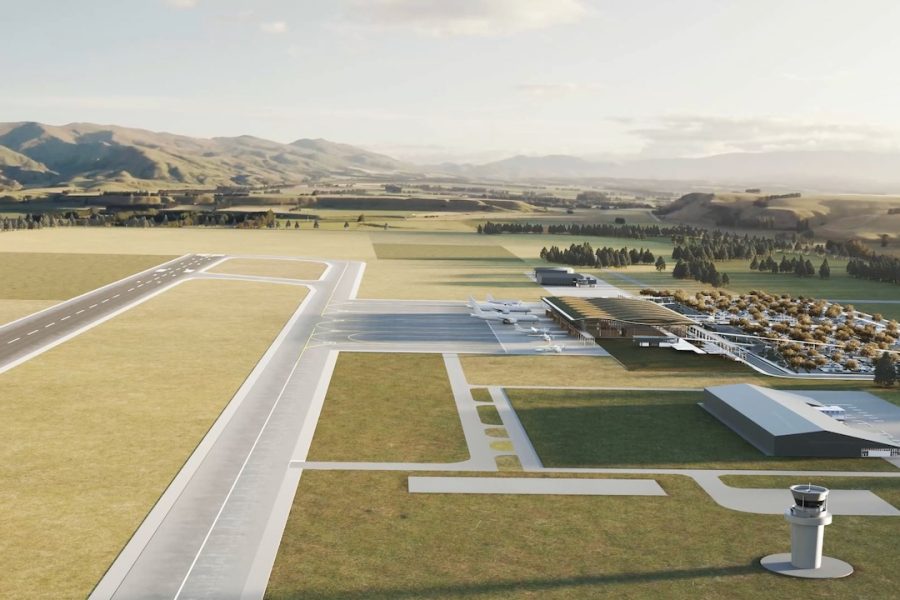6th October 2023 By Contributor
There is no need for a fourth international airport in the South Island, argues Queenstown Airport chief executive Glen Sowry.

Christchurch Airport is spending tens of millions of dollars just to ‘explore a problem’ with no fixed outcome in sight. In my view, it is pitching a solution in search of a problem. We can all agree that New Zealand is facing infrastructure challenges, but a shortage of airports is not one of them.
Christchurch Airport proposes to build an international airport operating 24 hours a day on farmland it has bought in Tarras – 10 minutes from Wānaka Airport and over an hour from Queenstown Airport. Its justification is that there is an unmet need in the Southern Lakes region.
Christchurch Airport is a majority Christchurch City Council-owned asset and is a commercial organisation, not an altruistic one. Its motive is to make a profit, so why not be honest about that?
The people of this region, who have few means to influence the project, have made it clear they do not want a flood of extra visitors. They want sustainable tourism, not over-tourism. The Queenstown Lakes and Central Otago district councils have destination management plans to deliver exactly that.

Meanwhile, Christchurch City Council, like many councils across the country, has a series of infrastructure challenges of its own and is strapped for cash. Rates are rising and the sale of community assets is being openly discussed. Rather than spending money on its nebulous Tarras project, Christchurch Airport could support Christchurch ratepayers through greater dividends.
In trying to build a case for its Tarras project, Christchurch Airport has made many false and unsubstantiated claims about Queenstown Airport, including that we do not have room to expand. We have plenty of land and our capacity constraints are the result of community consultation, not physical constraints. We are in the process of finalising a Master Plan that will allow passenger numbers to increase by a third by 2032 and allocates space for further expansion in the decades beyond that. However, that will only happen with the support of our shareholders and the residents of our region. We are listening to them, unlike Christchurch Airport, which seems to be ignoring the widespread rejection of the proposed airport at Tarras.
If this project is foisted upon Tarras, it is the communities of Central Otago, Upper Clutha and Queenstown that will bear the brunt of the environmental costs and additional strain on infrastructure.
Another fallacy promoted by Christchurch Airport is that no one else is planning for the lower South Island. Dunedin Airport will complete its 2050 Master Plan by the end of next year. It serves a larger population base than all of Central Otago and Dunedin residents are very keen to see the return of international services. Queenstown Lakes District Council has said it will be consulting on the future of Wānaka Airport soon. Similarly, Invercargill Airport is undertaking long-term planning and will soon be consulting the public on its planned terminal expansion.
Christchurch Airport is strangely silent on the international airport it already owns, which is set on a substantial landholding and has surplus capacity. What it is planning 400km away in Tarras is not a small regional airfield; it is a large-scale airport capable of handling widebody long-haul jets from Asia and beyond, operating around the clock. Inevitably, passengers flying into Tarras would bypass Christchurch, which has successfully rebuilt a vibrant business community and tourism industry after the 2010-11 earthquakes.
Christchurch Airport’s briefing to Treasury states 70% of passengers to the proposed Tarras airport would come from overseas. By comparison, about 30% of Queenstown Airport’s passengers arrive on international flights from Australia.
The focus is ramping up visitor numbers dramatically, which is plainly at odds with community sentiment. The communities of the Southern Lakes do not want their home to become an alpine version of Venice.
This is a spectacular part of the world. We know people want to come here, but the idea that we need to submit to limitless growth and fuel turbo-charged tourism is outdated. The conversation has moved on.
Queenstown Airport plays a crucial role in enabling the economic and social wellbeing of this region. Our recent community consultation confirmed residents value its location and contribution. We are concentrating on creating a resilient airport to be proud of and enabling lower-emission aviation. That won’t change.